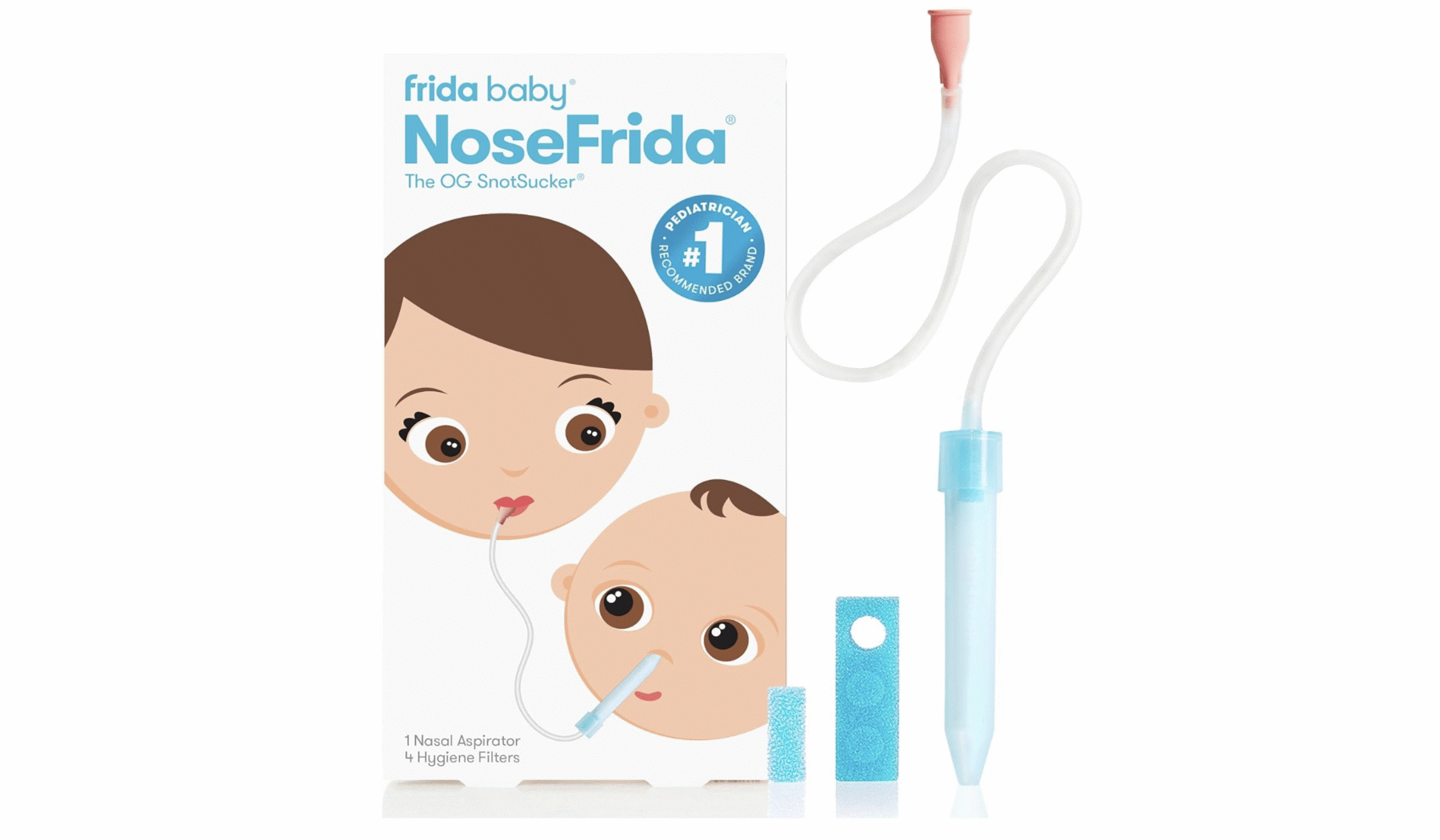Newborn - Weeks 5-8
By week 5, your baby might be smiling back at you when you engage them in play or give them a smile of your own. When your baby imitates your facial expressions, that same emotion is triggered in them too! Your baby is most likely turning their head to respond to different sounds and can probably now hold their head up for more extended periods of time when they are on their stomach.
They’re experimenting with sounds - coos, gurgles, grunts - learning which tongue and mouth movements will create certain sounds. To keep your little one learning, imitate their coos and talk to them as often as possible using your native language. They are yet to learn what you're saying. Still, they’re soaking up every word. Remember that all infants are individuals. If your baby isn't reaching these milestones just yet, that is alright, too.
Because every baby is different, there really isn't a steadfast rule about how much your baby should eat every day. Breastfeeding moms should be trying for at least 8 to 12 feedings in 24 hours. Formula-feeding moms should schedule at least 5 to 7 feedings daily for 24 to 32 ounces of formula. If your baby has regained their birth weight and is now steadily gaining about a one-half ounce to one ounce daily, regularly soaking at least six diapers a day, and having two to three soft bowel movements daily, they are probably eating enough.
Breastfed babies may reduce their bowel movements between six and eight weeks, going from stools at each feeding to stools every few days. If you have any concerns, speak with your baby's pediatrician.
Suppose your little one's immune system reacts negatively to proteins in cow's milk. In that case, your baby may have milk allergies, whether this is because you're breastfeeding and you've eaten dairy products or because your newborn is formula-fed with formula made with cow's milk.
Symptoms of milk allergies in babies include coughing or wheezing, vomiting, blood in stool, lack of weight gain, frequent spitting up, diarrhea, signs of abdominal pain, hives, a scaly skin rash, trouble breathing, watery eyes and stuffy nose, or even anaphylaxis, which is a life-threatening allergic reaction. Anaphylaxis requires immediate attention, so if this occurs, call your doctor, 911 or go to the ER.
For the first three to four months, your newborn needs 14 to 17 hours of sleep in 24 hours. Remember, they usually wake every two to four hours for a feeding, which is normal.
It is common for babies to develop a "cradle cap" by their fifth week at home. These white or yellow-orange flakes on their head may look a lot like adult dandruff. If you notice that your baby does have a cradle cap, don't try to shampoo it away. Shampooing on a daily basis can make it worse by drying out their little scalps. Also, keep your baby's head cool and dry, as sweat can increase flakes.
Regarding your baby's growth, it is most important to look at their growth rate instead of how much they weigh or how long they are. The average 5-week-old baby will weigh about nine pounds, give or take a little. Generally speaking, a healthy infant gains about 1 ½ to 2 pounds per month, their head circumference grows about 2 centimeters a month, and they will grow approximately 25 centimeters (10 inches) from the time they are born until the end of their infancy (12 months).
It's important to remember that these are general guidelines. If you have any fears that your baby isn't growing, or growing too slowly, be sure to check with their pediatrician. It's about time to schedule your baby's two-month appointment anyway.
Your post-baby bump is likely still sticking out, and if you didn’t gain too much excess weight during pregnancy and have already shed most of your post-pregnancy weight, it still will for a few months or more. And this is okay. If you gained more weight during your pregnancy, it will take longer to shed those pounds and regain your pre-pregnancy body. Your skin is elastic, but it takes time for things to return to “normal.”
You are still recovering from childbirth, and soon you will be able to exercise, take your baby out in public regularly, and resume your sex life. Don't skip a week and start exercising or engaging in sexual intercourse without the go-ahead from your doctor! If you exercised throughout your pregnancy, light exercise should generally be fine, such as light walking or stretching. When you are ready for sex, take it easy, especially if you have an episiotomy or a tear.
How's your diet? Remember that you need to eat a healthy, well-balanced diet, especially if you are nursing! Does your baby have allergies? You may have to tweak your diet to help his little tummy handle breast milk.
If you are breastfeeding, you may find that when things seem to be going smoothly and your baby is spacing their feeds and sleeping longer stretches, things suddenly go crazy again. Instead of every three hours, they might want to eat every hour. They might sleep more - or less - than you've expected. What gives? Although many women worry that this means their milk supply isn't enough, these behaviors usually indicate a growth spurt. The increased number of nursing sessions signals your body that your baby is ready for more milk.
It can take several days for your body to adjust appropriately. The best thing you can do is to hang in there and nurse on demand. Supplementing during a growth spurt will work against you. If your supply is going to match the demand, it is important to let your baby lead the way in determining how much nursing is needed.
These growth spurts often happen around two, three, and six weeks of age and again at three, four, and six months. Of course, each infant is an individual, so your little one may not follow this schedule. They usually last only a few days but can go up to a week. Knowing what to expect can help you to realize what is happening and better meet your baby's needs.
If you are bottle feeding, you may also notice growth spurt behaviors. If your little one is consistently finishing their bottles and acting hungry earlier than their usual feeding times, you might want to up their intake. Any increase should be done gradually. Your doctor can offer guidelines on how much your baby should be eating depending on their age and weight.
You spend a lot of time changing diapers, so why not make it more fun? Make up a song, dance, and take the opportunity to give belly tickles and kisses. As far as your baby is concerned, the sillier, the better. If you feel completely ridiculous, you've got it. And while it may seem silly to you now, it will all be worth it in a few weeks when they smile, giggle, and laugh at your antics.
Act out stories with stuffed animals! Your baby can't grasp objects yet, but they can see basic facial expressions. Stuffed animals are easy to see, feel, and laugh at for your little one!
Don't forget to look into different birth control options this week if you haven't already. Nursing is not enough to protect you from getting pregnant again. You have many options; your doctor can help you decide what will work for you. Just be sure you are taking charge of your decisions regarding this matter. Many women are surprised to find out just how soon after pregnancy they are fertile again.
There are stories about women who thought it was impossible to get pregnant without assistance and have a surprise baby not long after the first. You can certainly speak with your doctor if you would like to try again immediately, but most will suggest allowing your body time to recover before beginning another pregnancy.
If you find yourself in need of a shower, but there is no one to watch your little one, try putting a bouncer in the bathroom. You can keep watch and play peek-a-boo. Or, wait until nap time and take the monitor with you.
Did you just hear that? By week 6, your baby may begin to make sounds other than crying! Infants often start to make cooing noises during their second or third month. Tummy time may also have some surprising developments this week because, for the first time, your baby may be pushing themself up with their arms. Week 6 brings a lot of landmarks, and it’s important to take things slowly and enjoy every moment!
You may notice your little one’s personality is starting to emerge with giggles and coos. By now, most babies should eat about 24 to 36 ounces of breast milk or formula.
If you are breastfeeding your baby, you may be concerned about them being comfortable taking a bottle from your partner, grandparents, or eventual babysitters. Week 6 is a good time to begin introducing a bottle to your little one (if you haven’t already). It may ease the transition if you start with a small amount of expressed breast milk. Surprisingly enough, you may find your baby is more likely to take a bottle from someone other than you. Take advantage of this!
Use bottle time to sneak away for a bath or chat with friends! But don’t feel pressured to introduce a bottle. You can choose to breastfeed throughout your child’s entire infancy without ever introducing a bottle!
Unfortunately, your maternity leave may be running out. Though separating from your infant may be difficult, the good news is that most daycare facilities accept healthy, full-term infants who are at least six weeks of age. If you are considering sending your baby to daycare, the staff must be able to answer your questions. Below you will find a list of questions that may be helpful when trying to choose a daycare center.
If daycare isn’t for you, consider in-home care. Nannies, family members, or other professional caregivers (like nurses) might be a better fit for you until your baby is older. Be sure to check references and ask as many questions as possible. When deciding who will care for your child, there is no such thing as a stupid question!
If you are lucky, the time your little one is awake is pleasant for both of you. However, some infants have trouble with colic. These babies may spend most of their waking hours seeming miserable and fussy.
Although colic has been an issue for many mothers over many years, there is still no true understanding of the exact cause of this period of unhappiness. It was previously thought that the fussing was caused by discomfort due to stomach issues. Colicky babies are often gassy and fussy during or after feeds. Still, no definitive connection has been established between intestinal problems and the occurrence of colic.
Colic can be as difficult for parents as it is for babies. It can be frustrating and disheartening when the baby you adore finds no comfort in your arms. Many mothers end up crying alongside their seemingly inconsolable infants. Fathers are also not immune to the frustration inherent in dealing with a baby who doesn't respond well to anything you try to do to calm them down. If you are dealing with a colicky baby, here are a few things to remember:
Your little one crying doesn't mean you are doing something wrong. If you know your baby is fed, dry, clean, and getting enough sleep, then you are doing the right thing. If you fear that there may be something more going on, you should certainly speak with your pediatrician.
However, sometimes infants cry without providing you with any concrete reason why. Do your best to calm and comfort your baby, but try not to take the tears personally. Remember that this will pass. Colicky babies grow into sweet, good-natured toddlers and happy children.
For most, the six-week checkup will be the second visit to the pediatrician's office with your new baby. There won't be any shots during this visit, but if you plan on following the regular vaccination schedule, your baby will most likely receive vaccinations during the next appointment.
Please be sure to ask the pediatrician any questions you may have about vaccinations during this visit. Here is what you can expect for your baby's six-week checkup:
At some point between six and eight weeks postpartum, you should have a postnatal appointment with your OBGYN or healthcare practitioner to ensure you are recovering properly and feeling well.
You should be asked about your overall wellness and mental health at this appointment. Be honest. If you’ve been feeling anxious or blue, had intense feelings of sadness, or had thoughts of self-harm, you must mention these things. If you had an episiotomy or cesarean section, your doctor would check to see if the stitches have healed. They will also check your weight and blood pressure and discuss birth control. Other things to mention to your doctor are if you haven’t pooped or if you’re having trouble holding in your pee or poop.
If you are cleared for sexual intercourse, don’t be surprised if you need additional lubrication (due to your estrogen levels, you have less vaginal lubrication). If sex is extremely painful, contact your doctor and let them know.
It is important to give yourself a break. If your little one is spending hours crying each evening, allow someone else to help you during that time. If you take on too much and become stressed and exhausted, the fatigue can amplify the problem. Do you need help staying awake? Try turning on music, opening a window (to let in fresh air and light), or splashing cold water on your face.
You may have also been told it is okay to exercise now. Congrats! Remember to go easy on yourself! It took nine months to grow and baby and gain that weight, don’t expect it to drop off your body within one month! And remember to target the core muscles in your abdomen.
Wearing your baby in a sling, carrier, or wrap can bring many benefits to you and your little one. Try going out a few times to the park, the local mall, or even a walk around the block, and see what wonders this can bring you two.
Try a "Mommy and Me" Yoga or Pilates class.
It's week 7! Whether you are returning to work soon, or getting settled into a routine at home, enjoy the time you have! We have milestones, checklists, and much more for you this week.
Your little one is growing up fast and learning something new every day. They love to hear you talk and are tuning in to your facial expressions (as well as other sights and sounds), so while you're singing a song, telling a story, or simply talking gently, make eye contact with your baby to help them sync in and learn!
Your baby may be able to lift his head while lying on his stomach.
Their eyes may focus on your face.
Their eyes may also follow an object that is moved about six inches above their face. Bold shapes and patterns, primarily black and white, will attract their attention.
They may also know your voice and will likely respond to it by either becoming quieter or making more noise.
You may also notice that they like the sound of music and may find it relaxing. Your little one also recognizes other sounds by now, like the vacuum cleaner, barking dogs, bells, and whistles.
Your little one is probably still sleeping the day away. Most likely, they are averaging 15-18 hours of sleep per day. Though you may wish this included continuous sleep throughout the night, it probably doesn’t.
For the first three to four months, your newborn needs 14 to 17 hours of sleep in 24 hours. Remember, they usually wake every two to four hours for a feeding, which is normal. To encourage your baby to sleep through the night, some professionals suggest waking them up if they sleep for more than three or four hours during the day. Often these awakenings will coincide with your feeding schedule.
You may have noticed that your baby anticipates mealtime. At this age, breastfed babies should eat as much as they want. Generally, about 24 to 32 ounces of breast milk or formula in 24 hours is enough. You should continue to feed your baby every two to four hours, whether or not they are breast or bottle-fed.
The time between feedings and the amount they consume at each feeding will gradually increase. However, it would be best to feed at least every four hours during the daytime. An excellent way to tell if your baby has had enough to eat is to see if he seems satisfied and continues to have wet and poopy diapers. If you are concerned about your child’s eating habits, please check with their pediatrician.
Your little one has probably begun to coo at you, and you may be tempted to speak back with baby talk. Baby talk is an easy habit and certainly won’t do any damage. Some studies suggest that speaking normally to your child is the best thing for you.
These studies have shown that babies exposed to “normal language,” instead of baby talk, acquire language faster. However, other studies say that baby talk helps babies establish a unique, loving bond with parents and caregivers, helping them connect and feel safe.
Baby sign language is becoming more and more common among new parents. Though your child will most likely not be able to sign back to you until they are 8-10 months old, some experts agree that it certainly won’t hurt to start exposing newborns to simple signs. Most parents choose to start with signs that involve eating, such as milk, eat, or drink. These types of signs are need-based and will allow your child to request the things they may need when the time comes.
Tummy Time is essential for babies to develop neck, back, and shoulder muscles and to prevent issues such as flat head syndrome and twisted neck (positional torticollis). It will help strengthen your little one's core muscles and allow them to form the building blocks needed as they begin rolling, sitting, and crawling.
If you find that your little one hates tummy time, check out this article on tips and tricks for tummy time fun!Although it has been almost two months, you are likely still feeling the effects of giving birth. There’s a lot you can do to help yourself. If your back is hurting, try exercises specially designed to help strengthen back muscles.
You should also sit with your back supported during feedings and keep a straight back when you’re bending over, changing diapers, and pushing your little one around in a stroller.
If you have a heavy feeling between your anus and vagina, try doing pelvic floor exercises to strengthen the muscles around your bladder. This works for incontinence (a leaky bladder) as well. To strengthen your pelvic floor, try long squeezes (holding for as long as you can for up to 10 seconds) and short squeezes (quickly squeezing the muscles as fast as you can and then immediately letting them go as many times as you can until these muscles get tired).
Your postpartum bleeding should be slowing down by now. It usually stops in 8 - 10 weeks. You’ve probably visited your OB/GYN for your postnatal checkup to ensure you are healing properly.
You may still feel some discomfort, whether from a c-section incision, episiotomy, or tear, and other body parts may still ache due to your pregnancy, labor, and delivery. This is normal - give yourself a break and go easy on yourself. These things take time! If you feel your aches, pains, or complications are not normal, or if they prevent you from taking care of yourself or your baby, contact your healthcare practitioner. You know your body best and need to listen to what it’s saying.
Along with what is happening physically, you may still be reeling emotionally. Some days, you may feel like your life is spiraling out of control. You may feel tense, overwhelmed, and stressed. Shifting moods and tears are normal. Your body is adjusting to the hormone change, causing moments of joy and frustration.
Plus, you are constantly learning how to be responsible for this little person who is changing your life. You may be feeling sad about returning to work, or you may be looking forward to getting back to the old "you." Alternatively, maybe you’re sad about not returning to work and unsure about transitioning into a stay-at-home mom.
Mixed emotions are perfectly normal when facing such enormous life changes. Take a little time for yourself every day. Take 30 minutes to unwind, call a friend, take a shower, or spend time with a loved one. Don’t forget to express yourself and ask for help. If your feelings are getting increasingly depressed and low, you may have postpartum depression (PPD).
Symptoms of PPD include feelings of hopelessness, sleeplessness, extreme fatigue, the inability to stop crying, a loss of interest in things you used to enjoy and the world around you, a loss of concentration, memory loss, and an enormous amount of anxiety regarding your baby. If you’re experiencing these symptoms, get help immediately.
Songs with movement are great for little ones. They are learning to focus and track objects and recognize language patterns. Many kids' songs and rhymes have accompanying hand movements, like "The Itsy Bitsy Spider," but you can also create your own.
Is your baby fussy? Try:
Stretch your baby out this week. You may have noticed that they spent much of their time curled up initially, and the older they get, the more they will stretch out.
Can you believe your baby is two months old? Your baby has changed so much since they first came home from the hospital. Are you taking pictures or writing special moments in a journal or notebook? You'll be surprised at how much you have to capture and how fast it goes.
Your baby stays awake for extended periods and has learned there is more to life than just crying, eating, and sleeping. At this age, breastfed babies should eat as much as they want. Generally, about 24 to 32 ounces of breast milk or formula in 24 hours is enough. You should continue to feed your baby every three to four hours, whether or not they are breast or bottle-fed.
Remember that all infants are individuals. If your baby isn't reaching these milestones just yet, that is alright, too. If you are concerned, reach out to your pediatrician!
It is normal for babies to swallow air and pass gas at this age, but excessive gas can make both your baby and you miserable. Below you can find some simple tips to let less air in and help get more air out:
If your baby is still having problems with gas, try using gas relief drops. They are safe enough to administer after each feeding and can make a world of difference. Of course, check with your baby's pediatrician before giving any medication to your newborn, and be sure to read the label carefully for proper dosage information.
Every parent knows that babies cry, and crying is normal. Still, there is nothing as upsetting or frustrating as a crying infant who you cannot quiet. You have changed their diaper. You have fed them and burped them. You have tried rocking them, walking with them, running the vacuum cleaner, just about everything you can think of, and they are still crying.
Your baby may have colic. Colic is the term for persistent crying in babies that follows what can be called “the rule of three.” This means that a well-fed and otherwise healthy baby cries for more than three hours a day, three days per week, for at least three weeks. According to this definition, somewhere between 5% and 25% of babies have colic.
No one is absolutely sure what causes colic. If your baby is crying a lot, it is helpful to know what to look for that could indicate an illness. Repeated vomiting in babies needs to be investigated. Some spitting up is normal, but vomiting, projectile or otherwise, is not normal. If they are vomiting, they need to be seen by the doctor. Blood in the stool is not normal. Crying associated with diarrhea and blood can mean that your baby cannot digest milk sugar. Your baby should not have a fever or any other symptoms of a cold or flu.
Their breathing should be normal. If you are not sure, you should take your baby to his doctor. They will weigh and measure and look them over thoroughly, checking for any problem. If all appears well, it is rarely necessary to perform any lab tests. Your doctor will probably say that your baby is healthy.
If you find yourself more stressed than usual, take a break. Try to find a way to spend at least one hour away from your baby each day, even the tub or reading in your room. You can also get support from local parent groups.
If you don’t know where to find one, your local hospital is the best place to start. They should be able to point you toward some parent groups that meet regularly. If you aren’t into group meetings, try chatting with at least one friend or other parents online.
Acute sleep deprivation occurs when you sleep less than required on a single night or short-term basis. When this time frame lengthens, sleep deprivation becomes chronic. It is characterized by feeling drowsy after waking, and implications include sluggish mental performance, weight gain or loss, immune disorders, heart problems, diabetes, depression, and more.
One study comparing two sets of drivers, the first group being intoxicated and the second group being sleep deprived, indicated that similar effects on driving abilities were observed. Needless to say, sleep deprivation is a serious issue, and since many parents are sufferers, they are putting their health and their child’s safety at risk.
Raising children is difficult work. It requires every sensory vehicle to have the stamina to keep up with your children. Whether your baby is two months or one year old, they require constant attention, and many parents feel that they don’t get a break. When they do, they spend the entirety of this time trying to “get things done” and accomplish mounting to-do lists.Tummy time is recommended to help your baby to strengthen their neck and trunk and to avoid flat spots or other issues caused by always being on their back. There are plenty of toys and tools marketed for entertaining your baby during tummy play. Still, you don't need any special items. Laying back and putting your baby on your chest will allow you to talk to them and encourage them to lift their head to see your face.
Getting down on their level when they are on the floor will make them more likely to stay interested. If they fuss after only a minute or so, don't worry. Just try to fit in several short sessions daily. You'll see them growing stronger and benefiting from their "exercise routine" in no time.
By this time, you've probably ventured out with your little one. Many new moms find that getting ready to go somewhere takes almost as long (or longer) than the actual trip. A well-stocked diaper bag always ready to go can help expedite your preparations.
For your typical day, a well-stocked bag should have the following:
These items are certainly nice to have if you have the space or inclination:
For longer outings, it is nice to have the following:
Of course, this list will change over time. Once your baby starts solids, you will add snacks, bibs, spoons, and more. You should also ensure you always take your insurance and contact information for your little one's pediatrician.
The information on the Your Baby Club website is not intended to be a substitute for professional medical advice, diagnosis or treatment. Always discuss any health concerns with a qualified healthcare provider and carefully review all guidance that comes with any medications or supplements before taking.










